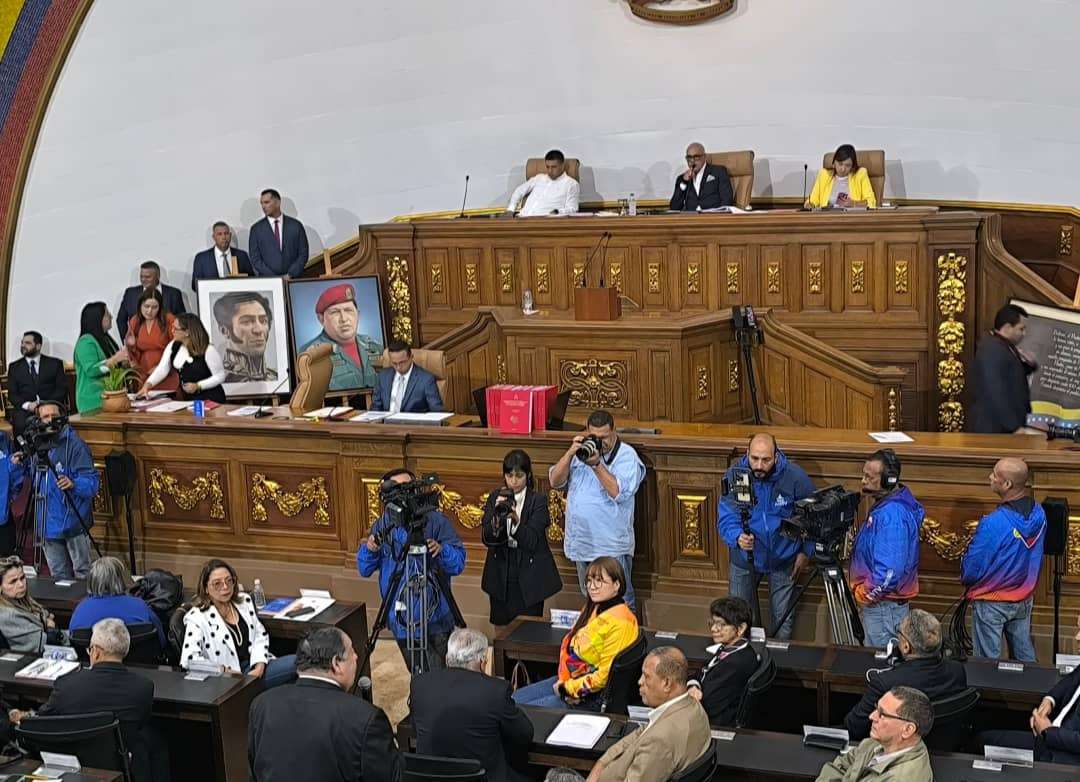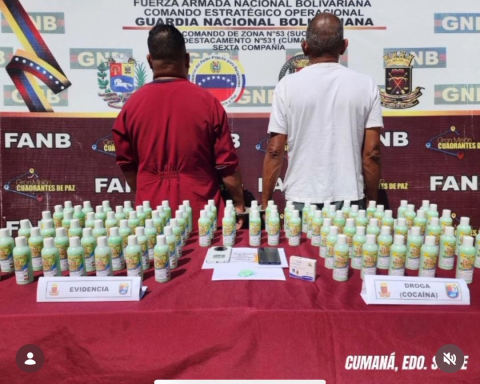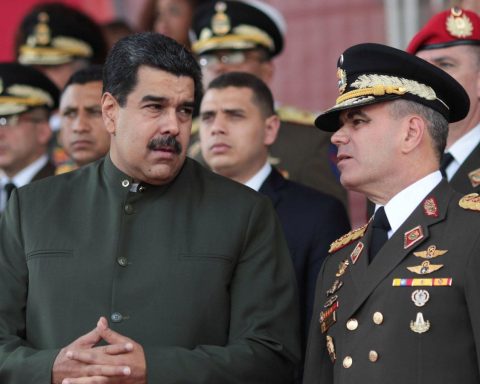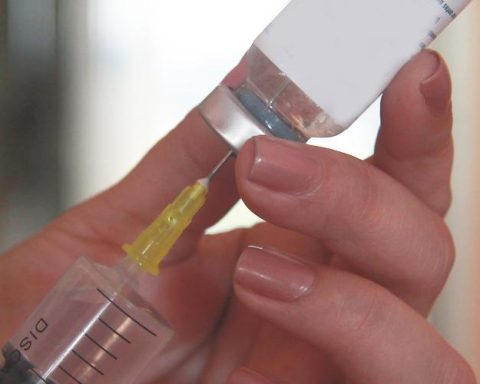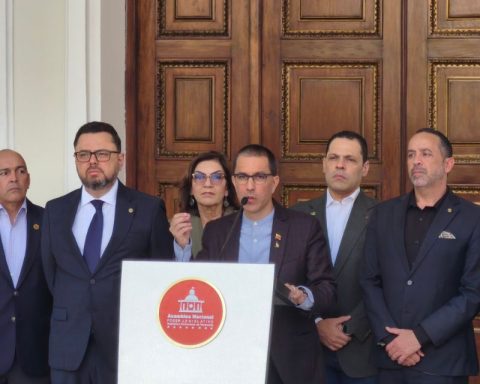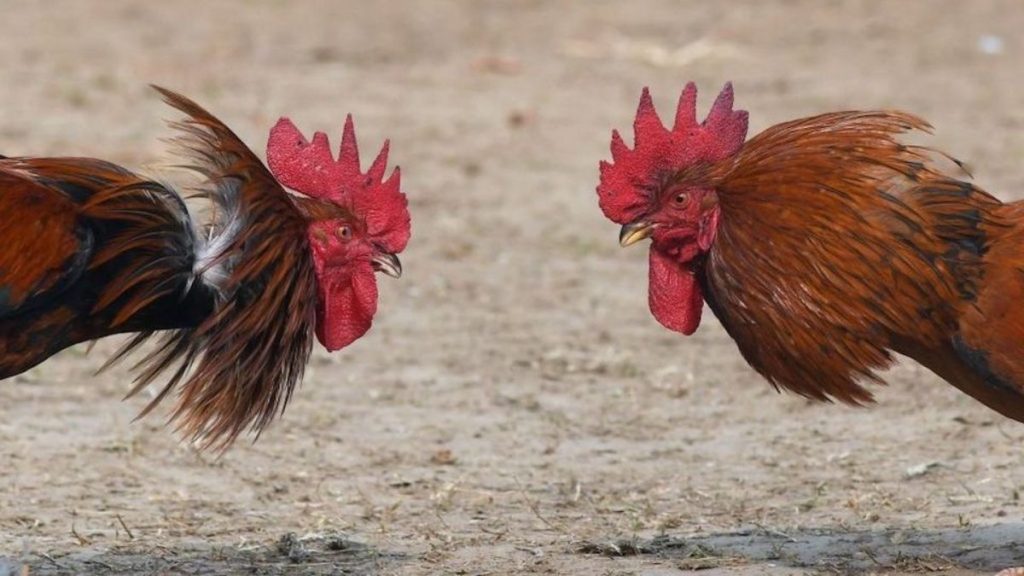The National Assembly unanimously approved the report of the Special Commission for the Defense of the Territory of Guayana Esequiba and Territorial Sovereignty, which was delivered by its president, deputy Hernán Escarrá, who explained that it consists of 15 volumes. , plus two that are in reserve, to be presented later to whoever presides over the Legislative Branch of 2025.
Escarrá, when submitting the 15 volumes to parliament, specified that they have a “documentary nature” and support the assertion that the Essequibo “was, is, and will always be ours.”
“These 15 volumes express the study, the opinion, the analysis, the evaluation of our Essequibo; There is, I say this with all responsibility, no possibility other than to affirm that the Essequibo is ours, was ours and will always be ours” he emphasized.
Regarding the two volumes in reserve, he stated that they will be submitted in January to the president of the National Assembly “and his good judgment will decide whether this should be published or not.”
The reason given by the parliamentarian for not presenting them at the event is because they contain military and diplomatic letters, which “cannot be the subject of a public analysis, since they are a reserve of the State.”
It should be noted that the submission of the report was the second item on the agenda of the last ordinary session of the legislative period of the year 2024.
Escarrá explained that in carrying out the investigation, he had the support of specialists on the subject, academics, the military and 80 universities in the country, which allowed the conclusions of the report to be supported in a solid manner.
The work carried out ranges from the pre-Columbian stage, the Captaincy General of Venezuela and ends in the Geneva Agreement, as he explained.
“Our best researchers, our best scholars worked there, we had the support of nearly 80 universities (…) in such a way that some opinions were approved and verified by those 80 rectors,” he noted.
The special commission, he stated, also had the support of the Energy, Economy, Security and Defense commissions.
He said that they had unprecedented experiences within the framework of the investigation, such as the fact that the president of the National Assembly had called for a consultative referendum, which was an example of “participatory democracy” and in this way paved the way for a new time.
He said that “very significant forums” were also held on the topic, which included the participation of boys and girls from the communities and officials from the military components.
Escarrá also recognized the participation of the “democratic opposition,” while repudiating the other sector of the opposition that demonstrated that “the country does not hurt,” by trying to disseminate that what was being done had a warlike nature.
He concluded by recalling that when he voted for Nicolás Maduro in the last elections, he did so because he is “a guarantee that we do not lose the Essequibo and that we maintain the sovereignty and independence of the nation.”
Jorge Rodríguez: we are and will be patriots
The president of the National Assembly, Jorge Rodríguez, after listening to the intervention of deputy Hernán Escarrá, described the report as “the expression of the absolute defense that the entire republic, all our women, all our men do and will forever do for the territory of the Bolivarian Republic of Venezuela”.
He affirmed that Venezuelans “are and will be patriots, republicans and Bolivarians; We are and will be decent and honest, and consequently decency obliges us, honesty obliges us, the eternal fire of the Bolivarian ideal, to not allow under any circumstances the foreigner’s footprint to tread the sacred territory (…) Guayana Esequiba is ours “, will continue to be ours and our existence, our life, our spirit, our flesh and our mind will not be enough to continue its defense.”
He indicated that the work carried out is a contribution and a grain of sand in the endless fight for Venezuelan territory.

